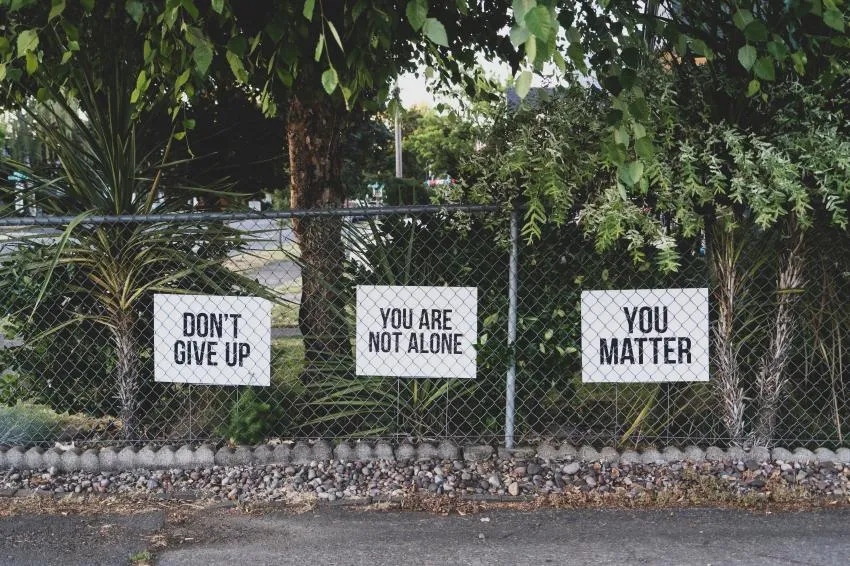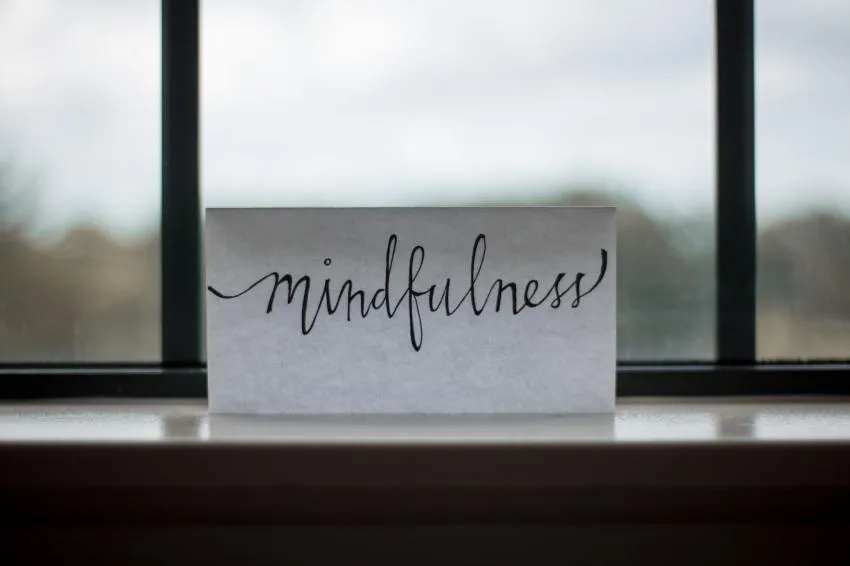Life After Trauma: Steps Towards Healing And Acceptance And Growth Towards Resilience
I read that half of Americans will endure one traumatic event in their lives. I didn’t look into that statistic thoroughly because it seemed off to me; shouldn’t it be more? Especially considering how the entire human population of our planet is simultaneously going through this pandemic together.

Trauma is defined as a deeply distressing or disturbing experience. It is known for being either an emotional wound or physical. Through recovery phases, one can begin to heal following a traumatic event in their life. There are steps available to ensure safety and stability that are found through options akin to each individual. Remembering and grieving the trauma helps lead to restoring relationships and forming new ones.
My own trauma is linked to my childhood and adolescence into adulthood, leaving me with emotional scars to this day. For me, death and trauma have centered themselves alongside significant revelations throughout my life.
Family relationships can be affected by trauma. A single traumatic event can bring upon a family immediate changes to their family life and structure. While each family member reacts to the trauma situation in their own way, they also respond to their fellow family members' reactions. These reactions can create gaps in everyday family life where instead of togetherness, there is withdrawal.
The dynamics in a family can change and re-emerge following another event affecting that family and its individuals. Coping skills can become a sensitive subject as the conflict in each other's coping skills lead to arguments and misunderstandings surrounding the event or even reminders of the event.
Here are the steps to heal yourself and cope up after facing traumatic situations in life:
1. Understanding the body’s reaction to trauma and using the five senses.
Trauma symptoms can be triggered in a person bringing depression, anxiety, headaches, and social issues. Our bodies automatically react to trauma in a response commonly referred to as “flight, fight, and freeze,” helping to react against perceived threats. The result of the reaction causes effects for both hormonal and physiological changes.

Being aware of the five senses and their reflection of our bodies' sensory information allows for grounding within ourselves while discovering who we are as we connect to our surroundings. Certain activities can awaken or stimulate these senses to find "our center," uniting us with our spirit, the core of who we are. The senses collect information about our environment to be interpreted by the brain. These automatic responses follow our sensory responses that prove essential to our well-being and, ultimately, our survival.
Through awareness of our surroundings and the world around us, we use our five senses to connect ourselves to our emotions and memories, causing an emotional impact on how we feel. We need to enjoy everyday requisites like eating a meal or being entertained by music or video, which can be disrupted by our emotions, significantly if impacted negatively.
Suppose our senses are interrupted, or anything interferes with our senses' functioning. In that case, it can force us to limit our interactions with the world around us and prevent us from performing activities. An example would be hearing loss or vision, which is an extreme example but can incur even temporarily in people who, for example, are sufferers of migraines.
Having been a victim of intense migraines during a time in my life, I learned how migraines have been linked to PTSD and trauma, referred to as “Post-Traumatic Headaches.”
2. Flashbacks, disassociation, and naming your feelings.
Flashbacks or nightmares can continue to haunt after a traumatic event. When trauma is experienced in childhood, it can cause a disruption in personality traits that carry into adulthood. While therapy received from a licensed professional early enough following the trauma, or sought in response to childhood trauma, can offer support and understanding. Childhood trauma is vital to understand how it can impact life as an adult, especially if left unresolved.

I discovered that while so much joy came from being a part of my daughter's everyday moments, almost abruptly after I felt such sorrow and despair associated with my trauma. I had envisioned that my own childhood would manifest itself into my existence again through my daughter. When that did not happen, I became haunted by my childhood memories and the sadness of losing my Mom.
Today, I try to only focus on who she is, the child she is, and cherish each moment and memory. My past can come alive for her through stories and pictures and keep memories solid and present in my own mind and consciousness. Motivating me to become a better version of myself.
3. Finding recovery through therapy.
Many therapy options can be introduced into your life and continued while providing different solutions devoted to helping patients with trauma, associated symptoms, and stressors. Counseling provides a safe space providing nurturing where emotions can be freely explored.

Hypnotherapy can be an effective method for coping with stress and anxiety. In particular, hypnosis can reduce stress and anxiety before an impending event or date. It’s been theorized that the mind can have an influence over the healing of our bodies. The main benefit of hypnotherapy is that it helps bypass the kinetic conscious mind to the root of the issues, balancing the emotions to provide an immensely soothing experience for the patient.
Therapy has been an avenue I have been open to trying time and again in my life. One psychiatrist I had begun to see provided me resources of recommended books significant to the situations that I was seeking understanding and treatment of.
During an early visit, I was assigned to create a family tree that allowed me to visualize my lineage branches, opening myself to understanding my heritage. Today, my genealogy research and respect for my family legacy have remained the signature start of my family legacy that helped me heal.
4. Keeping social.
Trauma can affect a person's socialization skills. Group therapy allows for self-awareness to be developed through shared stories of similar experiences or similar trauma effects. Feeling connected to individuals can help to overcome feelings of hopelessness that can occur following a traumatic event.
I have always understood my role in the family dynamics and the trauma caused by it. I believed myself to have had a keen understanding of everyone else’s life affected while trying to be sensitive to their emotions. After years of silence I felt as if no amount of time even devoted towards a conversation would help in unifying our family.

Group therapy allows for open discussion between multiple therapists and several patients in a setting where other points of view and experiences are shared to help offer support or advice. This form of therapy helps the patients develop their communication and socialization skills by learning to express themselves and being open to receiving perspectives from others.
5. Creating a new mantra (to act against the painful thoughts).
Positive mantra’s, or affirmations, are phrases repeated to yourself that describes the desired outcome for your life or describes the kind of person you would like to be. The repeated phrases allow the subconscious mind to start to believe them, and eventually, the affirmations become your reality.

Mantras are words repeated to help build concentration and focus and are common throughout typical meditation practices. While some mantras may be short in length, it is the act of repetition that can make a noticeable difference in someone's outlook for the day.
It was through accessible to another, and initiating a reliable nature in ourselves to one another that brought upon a new essence into existence, alleviate old wounds. This every day communication with my family helped to actualize commitment and welfare once again.
6. Keep yourself present.
Routines can be stabilizing for someone who has undergone trauma and working toward recovery. While trauma can cause parameters to constrict our lives, it’s through a regular routine and getting back to normal activities that generate control over our lives.

The emotions associated with trauma like shock, anger, guilt are a result of a loss of safety and security no longer felt following trauma. By accepting the feelings and allowing that feeling to be felt, it allows for healing. By accepting each stage of the healing process and each emotion, you can begin to learn to reconnect with yourself without judgment of yourself or guilt.
Through moving completely forward in life, my life, and focusing on my present self and my heart to give way to a new future and outlook surrounding my family, or sections of my family.
7. Set short as well as long-term goals.
Exercise and the mobility it offers our bodies help burn off adrenaline and release endorphins that are a natural stimulator and “feel good” mood elevators.

Our nervous system can feel stuck following depression and a lack of physical activity. Incorporating exercise as a daily routine naturally propels you into a rhythmic sensation adding a mindful element to your body and its movements.
Setting short and long-term goals help keep simplicity when beginning a new exercise routine while also setting yourself up for long-term success and growth.
8. Looking ahead and staying positive.
Once again, I find myself in a similar life situation, mirroring the most challenging parts of my past. My Mom's cancer proved untreatable, taking her to her death. Likewise, my Dad's death prevented me from memorializing him and leaving me again without closure. While trauma will undoubtedly be triggered by these new events in my life, the difference is that my family is here for me now every day.

It's the daily check-ins and the constant communication between us all each day that will enable me to adapt to the changing challenges through resilience. I see this new family bond becoming stronger than ever, which will be what I need to walk with my daughter and guide her through all of this.
Gaining the love, understanding, and support from them during this time has brought a resurgence of security in my life, allowing me the ability to face these unforeseen challenges ahead.
Opinions and Perspectives
I deeply relate to this article. The part about childhood trauma affecting adult life really hits home. I've been working through similar issues in therapy.
The statistic about half of Americans experiencing trauma does seem low. Between accidents, losses, abuse, and now COVID, I'd imagine it affects far more people.
The section about the five senses resonated with me. I've found grounding techniques using touch and smell especially helpful during anxiety episodes.
While therapy has helped many, I think we need to acknowledge that it isn't accessible to everyone due to cost and availability. We need better mental health support systems.
Interesting point about family dynamics changing after trauma. My family definitely grew apart after we lost my brother. Took years to rebuild those connections.
The body's reaction to trauma is fascinating. I never understood why I had such intense physical symptoms until I learned about the fight/flight response.
I disagree that hypnotherapy is effective for trauma. Traditional therapy and EMDR have much more research backing their effectiveness.
Sometimes the hardest part is recognizing that what we experienced was actually trauma. I spent years minimizing my experiences.
Your comment about hypnotherapy caught my attention. It actually helped me tremendously with my anxiety. Different approaches work for different people.
The focus on mantras is great but let's not forget that healing isn't just about positive thinking. Sometimes we need to sit with the difficult emotions too.
I appreciate how the article emphasizes the physical aspects of trauma. The mind-body connection is often overlooked in recovery discussions.
Can't stress enough how important that social connection piece is. Isolation after trauma only makes everything worse.
The part about Post-Traumatic Headaches was eye-opening. I never connected my chronic migraines to my past experiences before.
Creating new routines really helped me recover. It gave me something to focus on when everything felt chaotic.
Anyone else find it challenging to maintain those short-term goals during recovery? I often struggle with consistency.
The generational impact of trauma is real. I see patterns from my grandparents reflected in my parents and myself.
Exercise was key in my recovery. Running especially helped me process emotions I couldn't express in words.
Group therapy changed my life. There's something powerful about hearing others share similar experiences.
I worry that some people might read this and think healing is a linear process. In my experience, it's more like a spiral.
The pandemic has definitely shown us how collective trauma affects society as a whole.
Flashbacks are the worst. I wish the article went into more detail about specific coping strategies for those.
The family tree exercise mentioned sounds interesting. Understanding our roots can be healing.
I found mindfulness more helpful than mantras. Simply observing thoughts without judgment worked better for me.
The article could have addressed cultural differences in trauma responses and healing practices.


